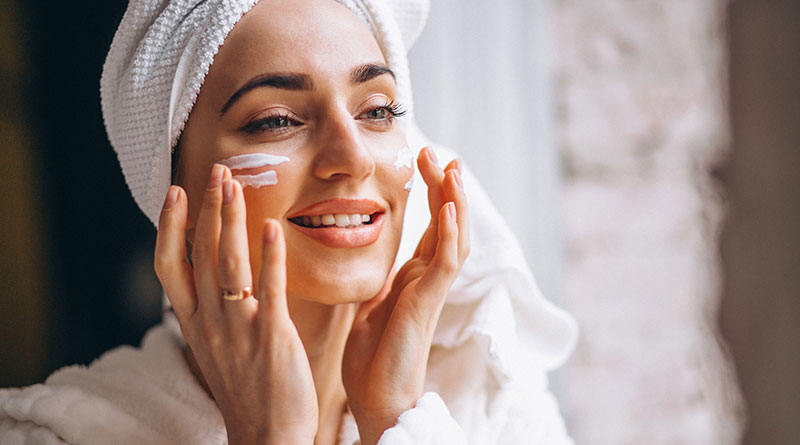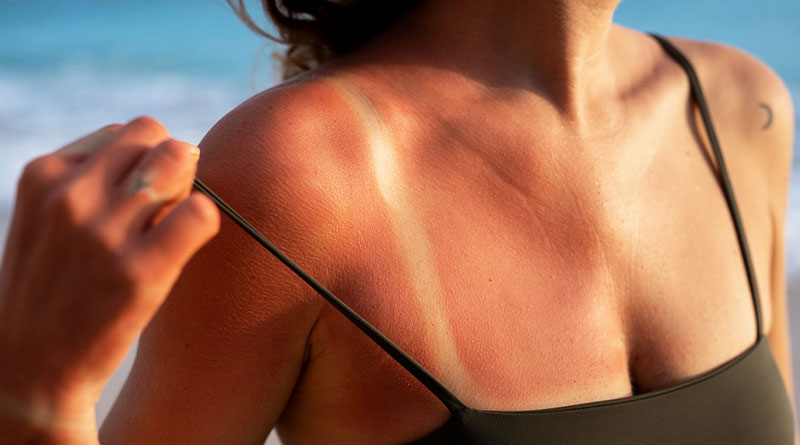In the United States, 1 in 5 people will eventually acquire skin cancer.
Sunscreen can shield you from cancer-causing UVA and UVB radiation, but reports and studies have been conflicting over whether or not the chemicals in sunscreen themselves cause cancer.
Science in 2019 has revealed, for instance, that certain sunscreen compounds do not merely remain on the skin’s surface and soak up UV radiation; rather, they are absorbed into the body.
In addition, numerous spray-style sunscreens and after-sun products sold in the United States were recalled in 2021 due to the presence of benzene, a chemical linked to cancer.
Is it true that sunscreen cause cancer?
Dermatologists offer reassurance and practical guidance before you give up sun protection products.
Can Cancer Develop From Using Sunscreen?
Consumers should be wary about using sunscreen in light of recent research showing that its components can be detected in the bloodstream after usage and that certain sunscreens include benzene. Although it is difficult to establish a causal relationship between sunscreen and cancer, we know that the benefits of using a mineral-based sunscreen, such as reducing the risk of skin cancer and delaying the aging process, greatly outweigh the hazards for most people.
In 2019, researchers looked at data from just 24 persons and determined four substances to be particularly problematic.
- Avobenzone
- Oxybenzone
- Octocrylene
- Ecamsule
Sunscreens in various forms (lotion, cream, and spray) were used four times daily for four days as part of the study. The findings were noteworthy, even if the study was preliminary and tiny.
After just one day, all four compounds were detected in the participant’s blood, and by day four, their levels had skyrocketed well above the limits set by the U.S. Food and Drug Administration (FDA).
In the trial, subjects applied sunscreen at a rate of 2 milligrams per square centimeter to 75% of their bodies. (It should give you some comfort to know that the study participants used significantly more sunscreen than the typical person.) Sunlight, heat, and humidity weren’t considered because the study was conducted entirely indoors.
The FDA has undoubtedly been prompted to review regulations and recommendations on the use of sunscreen by this study. Still, you shouldn’t forego the sunscreen.
Benzene levels in sunscreen as low as 2 parts per million were also deemed hazardous by the study’s authors. In addition, reports found that some products had benzene contents that were more than 6 parts per million in 2021, leading to the recall of many spray-style or aerosol sunscreens.
Benzene has been linked to decreased immunity, infertility, anemia, and even leukemia when exposed to it over time. According to the CDC, benzene is widely used in industry, particularly in the production of plastics, rubber, insecticides, and other similar products. It is also a gasoline, crude oil, and tobacco smoke component.
Since then, the FDA has revised its advice on using benzene in sun protection products. And studies are still being conducted to determine whether or not benzene is absorbed via the skin and what safe exposure levels are.
Consumers seek sunscreen to delay aging, prevent pigmentary changes, and decrease their risk of developing skin cancer. The discovery of a potentially harmful pollutant like benzene in cosmetics is disheartening.
Is It True That Certain Sunscreens Contain Harmful Chemicals?
You must be wondering that is sunscreen cause cancer. While selecting a sunscreen (and you should keep applying sunscreen), you check the label and avoid those that use:
- Avobenzon
- Oxybenzone
- Octocrylene
- Ecamsule
Although the benefits of chemical sunscreens have been well-established, there are still many unanswered questions concerning them.
The Interaction of Nanoparticles with Your Body
If you’re looking into mineral sunscreens, keep nanoparticles in mind. Mineral sunscreens, such as those containing zinc and titanium dioxide, used to be heavy and goopy. Nanoparticles are used in modern formulations to improve how they feel on the skin. More UV protection, according to the manufacturers, is another claimed benefit.
Some medical experts are worried that inhaling nanoparticles could cause lung harm, even though there have been no reports of cancer risks so far. Therefore, the Environmental Working Group does not recommend sunscreens in powder or spray form containing nanoparticles. Nanoparticles included in sunscreen creams and lotions are absorbed via the skin. However, there is currently no evidence that they are harmful.
Sunscreens with nanotechnology are a recent development. Because of this, understanding the effects of nanoparticles on the human body is challenging. The ecological impact of these sunscreens is likewise still being determined. The implications of these particles on humans and marine life need to be better explored so that researchers, manufacturers, regulators, and consumers may make informed decisions.
Reasons Why Sun Protection is Essential
Sunscreen has been shown to protect against the sun’s harmful ultraviolet (UV) radiation, which can lead to skin cancer and speed up the aging process.
Sunscreen should be used every day to prevent skin cancer and keep skin appearing healthy and youthful. It also protects you from sunburn to some extent.
Apply liberally; a single ounce of sunscreen (approximately the volume of a shot glass) should be enough to coat your entire body, including your face, neck, arms, and legs. The ears, eyelids, lips, soles of your feet, and scalp are often forgotten and need attention.
Sunscreens in whatever form—gel, cream, lotion, or powder—are subject to the same stringent FDA guidelines for safety and efficacy. Choose a sunscreen with an SPF of 30 or higher for optimal protection.
Which One Is The Most Secure?
Avoid spray-style or aerosol sunscreens until more is known about the effects of compounds like benzene.
Is there a safe sunscreen? Titanium dioxide and zinc oxide are examples of mineral-based sunscreen components (also known as physical sunscreen).
A sunscreen that offers protection from ultraviolet radiation A (UVA) and B (UVB) is ideal.
Additionally, there are additional measures you can take to safeguard yourself from the sun, such as protecting yourself from the sun by covering up or staying indoors between the hours of 11 a.m. and 3 p.m.
Conclusion
To cut a long story short, sunscreen is not going extinct anytime soon. Even though there has been a lot of buzz about the fact that sunscreen cause cancer, the evidence doesn’t support moving it from its prominent position in your regular skincare routine. The American Academy of Dermatology (AAD) advises using a broad-spectrum, water-resistant sunscreen with an SPF of 30 or higher.
Wearing protective clothing and seeking shade outdoors can lower the risk of UV damage and certain skin cancers.
Sahil Sachdeva is the Founder of curemedoc.com and a Digital Marketing professional with years of experience. If you need help in Content writing and want to increase your website ranking, connect with him, as he has some premium websites where you can share blogs with DoFollow links and increase your website’s ranking on Google.





